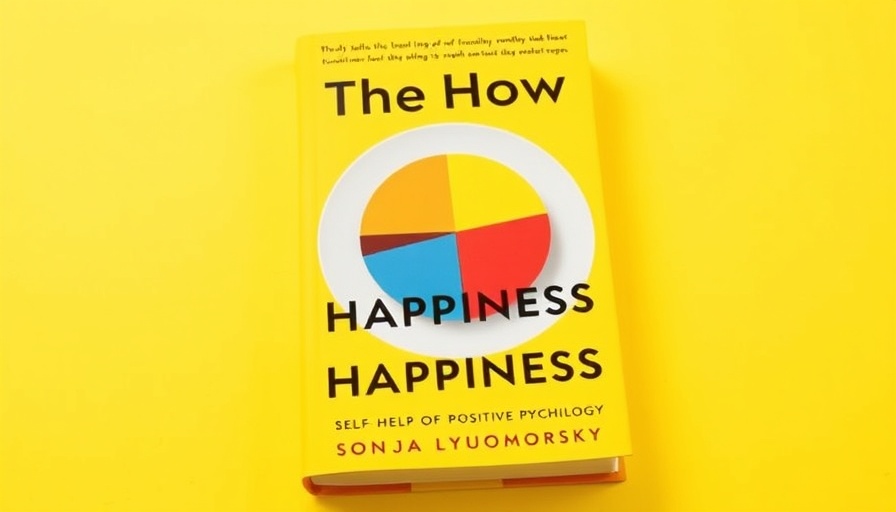
Unpacking the Power of Mindfulness
In an age where stress seems to accompany everyday life, mindfulness emerges as a transformative force. According to Dr. Shauna Shapiro, mindfulness is more than simply being present; it involves engaging with the moment without judgment. This practice allows individuals to recognize their emotional responses to stressors. Instead of reacting impulsively, mindfulness cultivates a space for conscious choice — a critical skill when navigating life's inevitable challenges.
The Neuroscience of Gratitude
Complementing mindfulness is Dr. Rick Hanson’s research on neuroplasticity. This science reveals that our brains can reorganize themselves based on experiences. Of particular interest is the brain’s negativity bias, where negative experiences tend to dominate our thoughts. By practicing gratitude — actively recognizing and appreciating positive experiences — we can create stronger neural pathways associated with happiness. As Dr. Hanson puts it, by 'taking in the good,' we can rewire our brains, enhancing our resilience against stress.
Mindfulness and Emotional Regulation
Implemented together, mindfulness and gratitude create a powerful approach to emotional regulation. Mindfulness encourages a non-reactive observation of emotions, letting one acknowledge feelings without being overwhelmed by them. On the other hand, gratitude promotes a habit of noticing the good in life, which can lead to greater overall life satisfaction. This combination allows individuals to deftly maneuver through stressful moments, reducing the likelihood of emotional outbursts and fostering healthier emotional responses.
Practical Strategies to Integrate Mindfulness and Gratitude
To reap the benefits of mindfulness and gratitude, integrating these practices into daily routines is essential:
- Mindful Breathing: Spend a few minutes each day focusing on your breath, acknowledging distractions without judgment.
- Gratitude Journaling: Each evening, jot down three things you are grateful for to nurture a positive mindset.
- Compassionate Self-Talk: Respond to negative thoughts with kindness, reminding yourself that everyone has struggles.
Building Healthy Relationships Through Mindfulness
Practicing mindfulness and gratitude doesn't just benefit individual well-being; it also enhances relationships. By applying mindfulness to interactions, one can improve communication and actively listen to partners, creating space for emotional intimacy. When individuals express gratitude towards their partners, it fosters deeper connections and helps in conflict resolution. A simple 'thank you' can shift dynamics positively, supporting healthy relationship goals.
Future Trends in Emotional Wellness
The future of mental health approaches will likely lean towards mindfulness and gratitude practices. As more research backs their efficacy, people will embrace these strategies not just for stress management but as essential tools for emotional health. In a rapidly changing world, nurturing relationships and reinforcing personal well-being through these practices will be invaluable.
Call to Action: Start Your Journey Today
As we continue to face the stresses of modern life, integrating mindfulness and gratitude practices into daily routines can lead to profound changes. Start with small steps — consider adding mindfulness exercises and gratitude reflections into your weekly schedule. Not only will you enhance your emotional well-being, but you’ll also create stronger, healthier relationships along the way. Commit to this journey today; the peace and joy you cultivate can profoundly impact all areas of your life.
 Add Row
Add Row  Add
Add 




 Add Row
Add Row  Add
Add 

Write A Comment